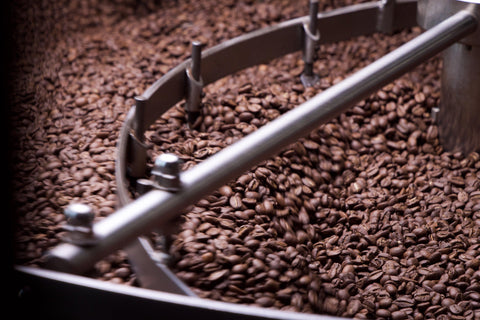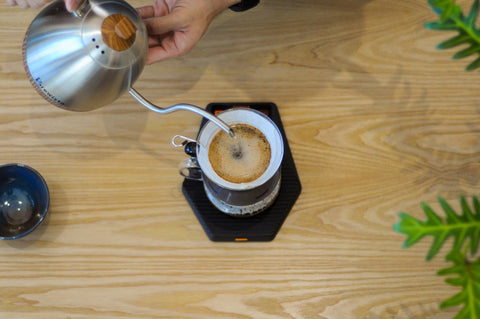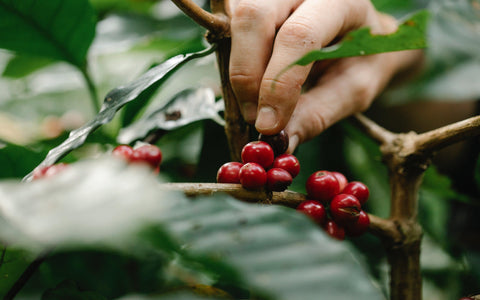
Part Two: The Roaster’s Hands
For the second part of this series, we shed light on the coffee Roasters. Picking up where we left off, we’ve established how farmers play a part in determining the flavours of the coffee, how different ways of processing will set the tone for different flavours. Once processed and dried, they are sorted and graded before it's ready to be sold.
At this point, the coffee is just a couple of steps away from being what most people recognize as liquid lightning. At this stage, the coffee looks anywhere from green peas to grey steel, which looks far from what people identify as commercially depicted coffee beans.
Let’s cut to the chase, roasting is a “cooking” process of applying heat to the beans, triggering chemical reactions that are responsible for the development of the flavour compounds. Simply put, roasting the beans at different degrees will influence the flavour of the coffee.
Roasting is generally described by the colour of roasted beans, ranging anywhere from light to dark roast. Minimal changes in temperature and time can vastly affect the flavour of the roasted coffee beans, determined by the ability to highlight the desired flavour components, this is where an experienced roaster differs from novice roaster.
-----
Light Roast
Light-roasted coffee is identifiable with a light brown colour with no visible glimmers of oil. Typically, coffee roasted at this level retains the purest and bare flavour characteristics, making it easier to taste and differentiate coffee from different origins. However, not all coffees are suited to be roasted lightly. More often than not, the coffee will not have a balanced flavour. To elaborate, it lacks the right amount of acidity, body, and sweetness without being overly sour or bitter.
Characteristics:
High level of acidity, very low level of bitterness, light body.
Fruit-like acidity & sweetness, tea-like body, floral.
-----
Medium Roast
As for medium roasts, a darker shade of brown will be apparent with slight sheens of oil. Medium-roast beans are quite popular in the specialty coffee industry, attributed to more approachable flavours by the mass of consumers. With that said, the original flavours of the coffee is preserved, along with the flavours that were created during roasting. In addition. there may be a tinge of bitterness compared to light roasts.
Characteristics:
Medium level of acidity, low bitterness
Fruit-like acidity & sweetness, Milk chocolate, Nuts, medium-body
Feel free to check out our Medium Roast beans :
----
Dark Roast
Dark roasted coffee beans can be distinguished by its dark brown or black appearance. It's not uncommon to find the beans coated with a shiny surface of oil. Traditionally, coffee is roasted dark as a means to disguise lower-grade defective beans, because it would be a challenge to identify dark coffee from different origins. Inevitably, the brightness & acidity of light roast are now replaced with body & chocolatey notes.
Characteristics :
Low level of acidity, high level bitterness
Dark chocolate, Nutty, Ashy, Smokey, Herby
-----
Taste the difference
2.Medium Dark Roast (Lunar Fall)





